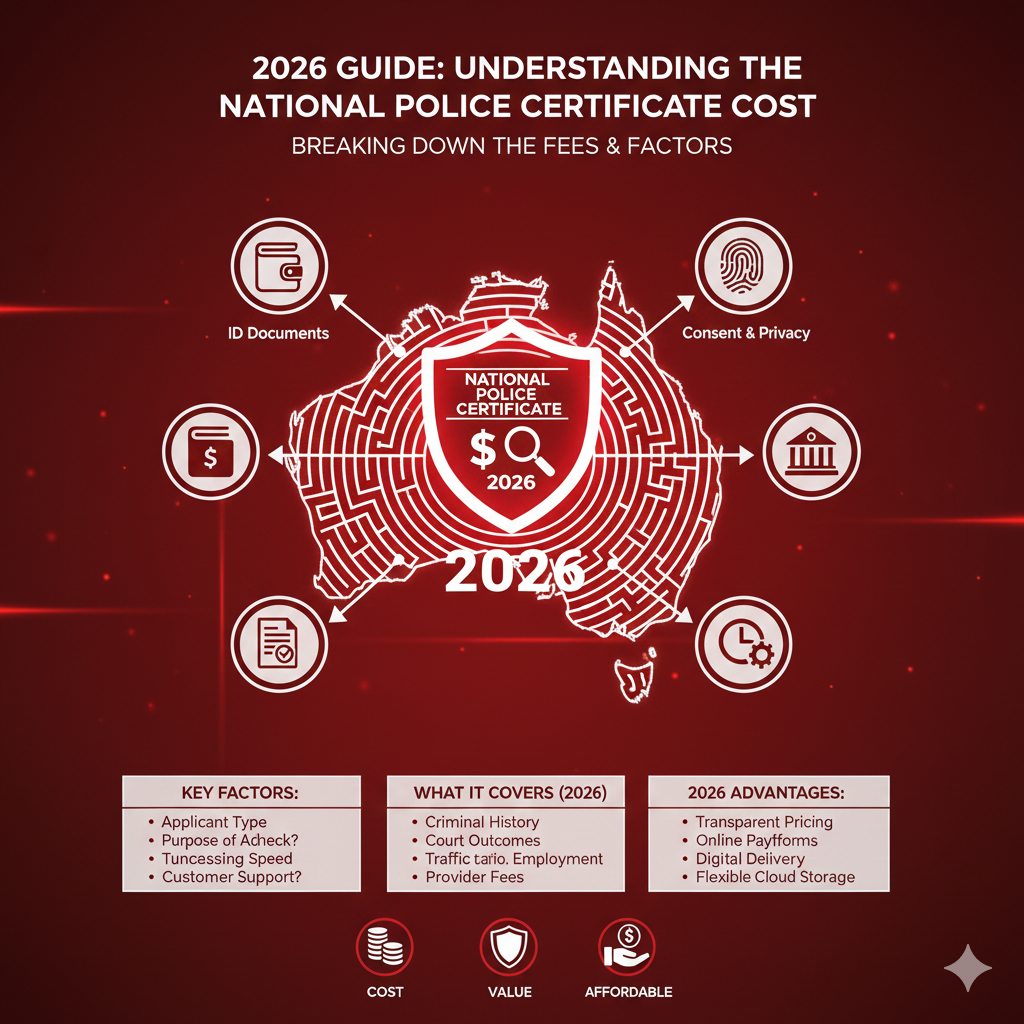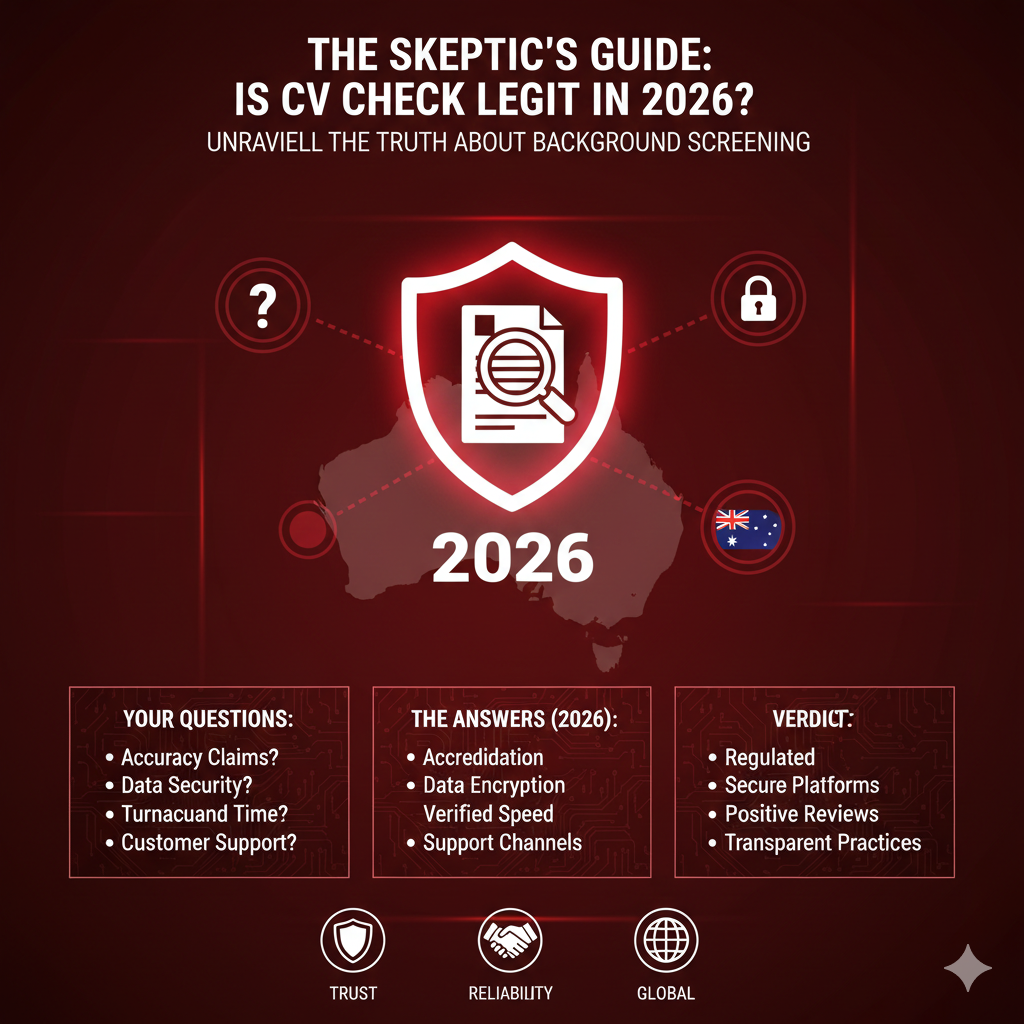Compatibility is a strategic necessity in the complicated regulatory environment of today, not just a legal one. Companies in a variety of industries must adhere to strict guidelines in order to safeguard customers, maintain moral business practices, and reduce risk. The background check is one of the best methods for achieving these requirements. The role of background checks are more important than ever in preserving compliance, averting expensive legal problems, and safeguarding your reputation.
The essay that follows looks at how background checks enhance your employment process and assist you in adhering to legal requirements, particularly in vulnerable sectors.
Understanding the Regulatory Landscape in Australia
Industry Regulations and Hiring Standards
Different industries are subject to varying levels of scrutiny and regulation. Whether your business operates in healthcare, financial services, aged care, education, or cybersecurity, there are rules to follow regarding who you can hire and how.
For example:
Healthcare and aged care sectors require employees to pass criminal background checks and, in many cases, Working with Children Checks or NDIS Worker Checks.
Businesses are required to make sure that applicants fulfill the requirements for fit and proper persons, which frequently entails checking job records and looking for past transgressions.
Those who will deal closely with children and vulnerable groups must have their backgrounds checked by childcare and education providers.
In each case, the role of background checks is essential for employers to confirm that candidates meet regulatory hiring standards and do not pose risks to others.
Why Compliance in Hiring Matters
Protecting Your Business from Legal Liability
Failing to comply with industry hiring regulations can result in significant consequences. These may include:
- Financial penalties and fines
- Legal action from clients or regulators
- Loss of business licenses or certifications
- Reputational damage in the media or online
By conducting proper background checks, your business creates an audit trail showing due diligence in the hiring process. This helps demonstrate to regulatory bodies that your organisation takes compliance seriously.
Avoiding Costly Mis Hires
Legal repercussions and the expense of employing someone who might not be qualified for the position are two hazards associated with noncompliant employment. A bad hire can affect consumer trust, staff morale, and productivity. The role of background checks are used as a screening by making certain that only reliable, competent, and suitable applicants move on to the next step of the employment process.
The Role of Background Checks in Creating a Safe and Trusted Workforce
Enhancing Workplace Safety
It is essential to have some sort of security and dependability in occupations, where employees be around with people who are disabled or vulnerable and where there is secret information stored. It is a must for recruiters to make sure that their employees have no criminal background.
Examples include:
- Aged care workers who may be working with elderly residents
- Childcare professionals who are responsible for minors
- IT professionals with access to sensitive financial data
Comprehensive background checks reveal potential red flags, such as:
- Criminal convictions
- Dishonesty or theft in previous roles
- Workplace harassment complaints
By proactively identifying these issues, businesses create safer work environments for staff, clients, and the wider community.
Exhibiting Ethical Accountability
Ethical hiring is not only a good practice, but it also demonstrates to stakeholders and clients that your business values integrity. This is especially important for industries that rely on public trust, such as healthcare and education. In this case, the role of background checks serves a purpose beyond simple compliance; they show your organization’s moral commitment to transparency and accountability. You can do police checks from your comfort even in Victoria, Queensland, and others.
Common Types of Background Checks Used for Compliance
To meet compliance standards, employers often use a variety of screening tools. These may include:
National Police Checks
Used to identify any criminal convictions that could disqualify a candidate from working in regulated sectors.
Ideal for: Aged care, healthcare, education, and financial services.
Employment History Verification
Ensures candidates are honest about their past roles, responsibilities, and achievements.
Ideal for: Executive hiring, managerial roles, finance, and law.
Working with Children Checks (WWCC)
Mandatory for individuals working in childcare or educational roles to ensure they’re safe to work with minors.
Ideal for: Schools, early learning centres, after school programs.
NDIS Worker Screening Checks
Specifically designed for those working with people with disabilities under the National Disability Insurance Scheme (NDIS).
Ideal for: Disability support providers and workers in related services.
Identity Verification
Validates that the candidate is who they claim to be, minimising the risk of identity fraud.
Ideal for: All industries.
The role of background checks here is multifaceted these tools work together to create a complete risk profile of the candidate.
How Background Checks Help Mitigate Legal Liabilities
Proving Due Diligence to Regulators
If your organisation is audited or investigated following an incident, your hiring records will be one of the first things examined. Showing that you followed proper procedures, including background checks, can protect you from liability.
Preventing Negligent Hiring Claims
Employers may be held liable for negligence if an employee harms someone and the employer failed to uncover prior issues during hiring. A documented background check process helps reduce this risk significantly.
The role of background checks is not only preventative it’s protective.
Upholding Brand Reputation Through Ethical Hiring
Why Your Hiring Practices Reflect Your Brand
It is the individuals who represent your company that shape public opinion. Employing people who don’t fit industry norms can harm a brand’s reputation, particularly if their actions lead to scandal or illegal activities. Using an open, legal recruiting procedure makes it obvious that your business is dedicated to doing things morally.
Case in Point: High Profile Hiring Mistakes
There are countless examples of companies suffering PR disasters after failing to properly vet new hires. These missteps cost not just money, but customer trust and market share. The role of background checks in this space is to uphold credibility and build lasting trust with your stakeholders.
Best Practices for Ensuring Compliance Through Background Checks
Customise Checks to Your Industry
Different industries have unique regulatory demands. Make sure your background check process aligns with the legal standards and risk level of your sector.
Get Candidate Consent
Under Australian privacy laws, employers must obtain consent from candidates before conducting background checks. Always ensure that your practices are ethical and transparent.
Use a Reliable Screening Partner
Partnering with a professional service like Rapid Screening ensures that your background checks are conducted thoroughly and in accordance with relevant laws and standards.
How Rapid Screening Can Help
At Rapid Screening, we specialise in supporting businesses with tailored, compliant, and efficient background check solutions.
Our services include:
- National Police Checks
- Working with Children Checks
- Employment History and Reference Verifications
- Identity Confirmation
- NDIS Worker Checks
With secure digital systems and quick turnaround times, we help employers streamline the hiring process without compromising on compliance.
Real World Impact: Background Checks in Action
Case Study: Aged Care Facility in Victoria
An aged care provider partnered with Rapid Screening after facing regulatory scrutiny due to a prior employee misconduct case. By implementing comprehensive background checks across all new hires, they passed their next compliance audit with zero violations and improved resident safety metrics.
The role of background checks was central to regaining regulatory approval and community trust.
Case Study: Financial Services in Sydney
A mid sized finance firm used our employment verification and police check services to vet their client facing teams. They uncovered discrepancies in three applicants’ claimed roles and were able to hire candidates with stronger, verified backgrounds instead.
The Future of Compliance: Why Background Checks Will Remain Critical
As regulations evolve, hiring practices must also change. With increasing emphasis on workplace safety, ethical governance, and digital transparency, the role of background checks will only grow more essential.
Investing in smart, compliant screening solutions today prepares your business for the regulatory challenges of tomorrow.
Conclusion: Building a Secure and Compliant Workforce
We cannot ignore the significance of the role of background checks, as in these times, where safety, integrity, and accountability are so important. It does not depends on what your industry or sector is, whether it is a healthcare, financial institute, or an educational institute, these screenings act as a barrier between you and adverse publicity and keep you safe against legal risks. By doing thorough background checks and aligning your recruiting procedure with industry requirements, you can make sure:
- A more trusted team
- Stronger compliance documentation
- Long term business success
Make compliance part of your hiring culture not just a checkbox. Trust background checks to help your organisation thrive in an increasingly accountable world.
Frequently Asked Questions (FAQs)
Q) Why is it that compliance with regulation requires background checks?
In compliance with laws and regulations, background checks are used to ensure that applicants meet the ethical and legal standards of specific industries. By verifying identity, employment history, and criminal background, employers can avoid hiring individuals who may be harmful or who don’t follow industry-specific standards.
Q) Which Australian sectors have background checks as a requirement?
Background checks are demanded by law and industry in industries like healthcare, education, and NDIS. These checks protect vulnerable groups and help companies very much in fulfilling their legal responsibilities.
Q) Can failing to conduct background checks lead to legal penalties?
Yes. Employers who fail to conduct appropriate background screening can face fines, legal action, and loss of licensing if found to be noncompliant with industry regulations. The role of background checks here is to act as a preventative measure against negligent hiring and legal exposure.
Q) How often should background checks be updated or renewed?
The frequency depends on your industry. Some sectors, like childcare and aged care, require periodic re-checks (e.g., every 3 to 5 years). Employers should consult with their regulatory body to determine compliance timelines and ensure the role of background checks is maintained throughout employment.
Q) What makes Rapid Screening a trusted partner for compliant background checks?
Rapid Screening provides customised, fast, and fully compliant background checks aligned with Australian regulations. With expertise in multiple industries, our solutions help employers confidently navigate compliance challenges while upholding the role of background checks in building a secure and ethical workforce.




